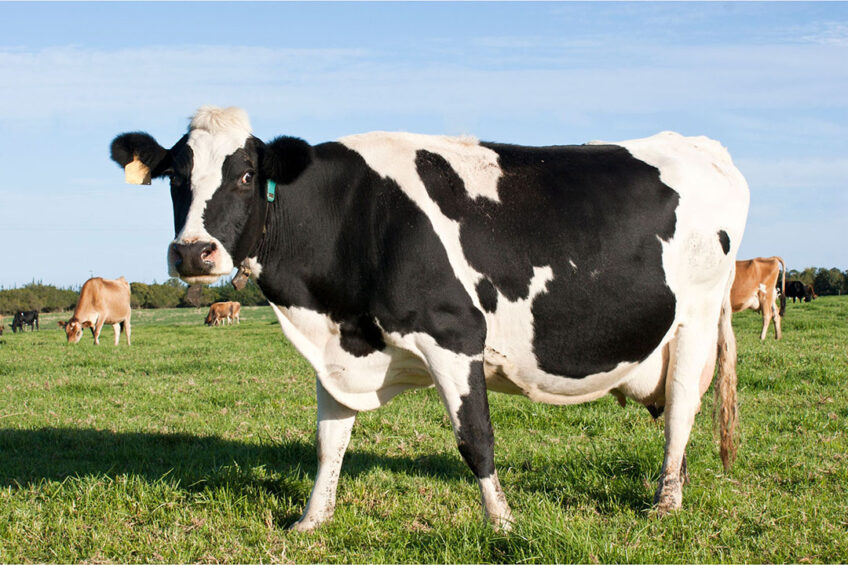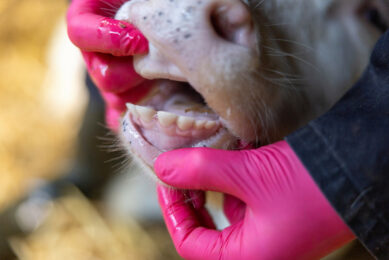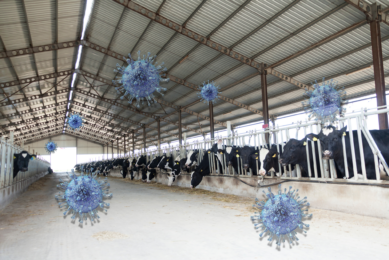Dairy farmers help explore roundworm management

Dairy farmers are being invited to take part in a survey exploring the management of cattle roundworms as part of an ongoing 3-year research project that is looking at understanding the current situation in UK herds.
The Biosecurity and Roundworm Advice for Cattle Enterprises project involves researchers from the Moredun Institute, James Hutton Institute, Scotland’s Rural College and the University of Liverpool and is funded by the UK Biotechnology and Biological Sciences Research Council.
The survey will focus on the farming practices of dairy and beef producers, the cattle kept, animal movements on and off farm, and the use of knowledge of worming drugs.
Roundworms in cows a growing concern
Roundworms are ubiquitous in the UK cattle industry and are of growing concern for livestock producers and policymakers due to productivity impacts and the environmental impacts of livestock and associated treatments. In the UK, there are only a few compounds (benzimidazoles (BZ), levamisoles and macrocyclic lactones (ML)) to control these pathogens and anthelmintic resistance is increasing. ML resistance is commonly reported in the UK, and the first case of BZ resistance was recently recorded. But little is known about the current BZ-r prevalence in UK cattle roundworms.
One effective but often overlooked control strategy is appropriate quarantine/biosecurity. Ensuring appropriate measures are taken to keep pathogens out of herds or limit the spread of the disease through effective biosecurity/disease management is essential for increasing the lifespan of current anthelmintics.
The project is bringing together a multi and inter-disciplinary team to combine and integrate state-of-the-art molecular parasitology, social science and mathematical modelling methodologies and aims to:
- Quantify the risk of roundworms/resistance – this will be achieved through characterising roundworm infections in cattle sold at auction using sequencing technologies to study the prevalence and emergence/progression of BZ-r in UK herds.
- Explore potential impact/outcome: the study will parameterise, develop and apply a mechanistic model to simulate:
- The impact of best and current practices on roundworms and reduce transmission by tracking the potential fate of roundworms being introduced on farm in order to explore the role of animal movement in the dissemination of anthelmintic resistance
- Generate visual outputs for stakeholders to highlight potential outcomes of particular practices.
Model scenarios will be influenced by the parasitology findings and workshops and discussion groups will be held at three sites across the UK.
The questionnaire can be found here: Qualtrics Survey | Qualtrics Experience Management
Join 13,000+ subscribers
Subscribe to our newsletter to stay updated about all the need-to-know content in the dairy sector, two times a week.










